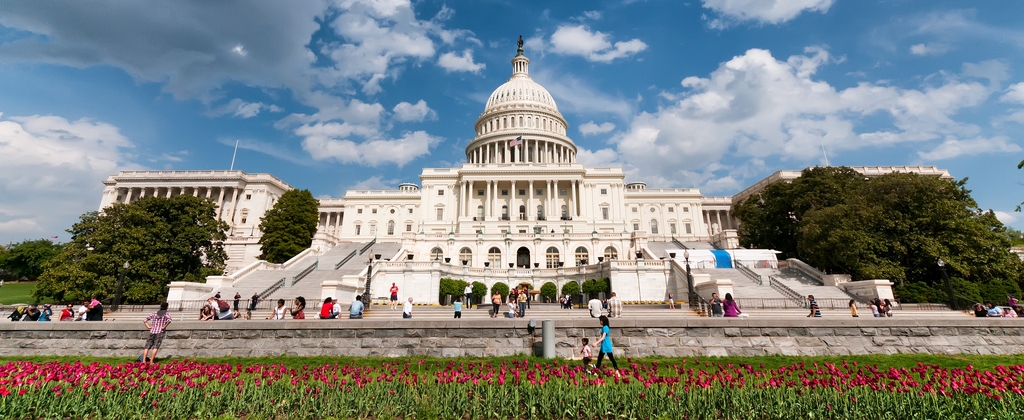
After a long lull, the nation’s capital has engaged with energy issues in a big way over the past few weeks. In April, the Department of Energy released its first installment of the Quadrennial Energy Review (QER) on transmission, storage, and distribution. The report identifies challenges associated with our aging infrastructure – everything from severe weather events to cyber terrorist attacks. But it also notes investment opportunities in renewable energy and distributed energy technologies. Energy Secretary Moniz took the show on the road, discussing the importance of both public and private investment in energy from the halls of Congress to The Daily Show. What happens next, who knows?
In response to the QER, Congress released dozens of bills, with the Senate planting its flag in the ground on comprehensive energy legislation – traditionally the biggest Congressional lift. Sen. Lisa Murkowski (R-AK), chair of the Committee on Energy & Natural Resources, introduced 17 bills last week. They covered a wide array of topics of interest to advanced energy, including distributed generation, net metering, reliability, microgrid implementation, and hydropower. The bills are components of Murkowski’s proposed comprehensive energy legislation focusing on efficiency, infrastructure, supply, and accountability. The Committee has already held a hearing on efficiency, and is expected to hold hearings on the remaining topics over the coming weeks. Senate Democrats also introduced a number of bills, primarily focused on grid modernization and DER integration.
Sen. Angus King (I-ME) put forward new legislation last week with his “Free Market Energy Act of 2015.” His bill aims to recognize the technologies that are changing electricity generation and delivery through distributed energy resources (DERs), and gives them a free-market spin. Amending the Public Utility Regulatory Policy Act of 1978 and Federal Power Act, King’s bill would grant DERs right of interconnection, no different than a power plant. It would also unbundle rates for DER to account for factors such as time-of-use pricing, demand response, and ancillary services. If a state does not unbundle rates, the bill would require utilities to buy the power output from DER at market rates. States could establish fixed charges for net metering customers, but those charges could not exceed $10 per month.
The price ceiling on fixed rates is an important aspect of King’s bill. Some utilities argue that net metering customers do not pay their fair share of supporting the grid they rely on for power they can’t generate themselves, so fixed charges are needed. The Salt River Project’s (SRP) board in Arizona recently approved a fee and demand charge for new solar rooftop customers that will add $50 a month to a customer’s bill. Fixed charges like these suppress demand for distributed generation, in the guise of maintaining the grid. This issue is not going away, so stay tuned.
In other matters, AEE Members continue to maintain a strong presence on Capitol Hill with Phil Giudice, CEO of Ambri, testifying on the benefits of energy storage in front of the House Committee on Science, Space, and Technology earlier this month. With interest in advanced energy coming from both sides of the aisle and chambers, AEE looks forward to playing a continuing role in this discussion.
Get all the updates on energy policy you need. Sign up for AEE Weekly.
